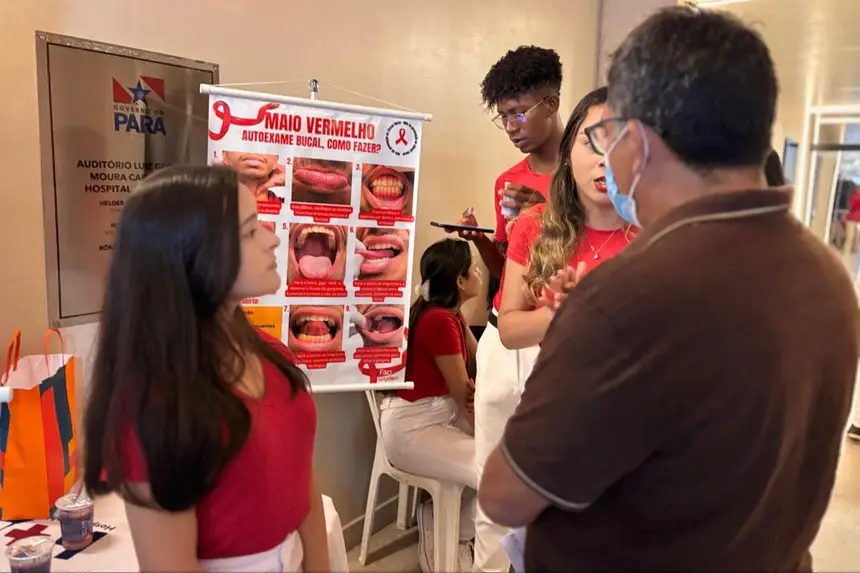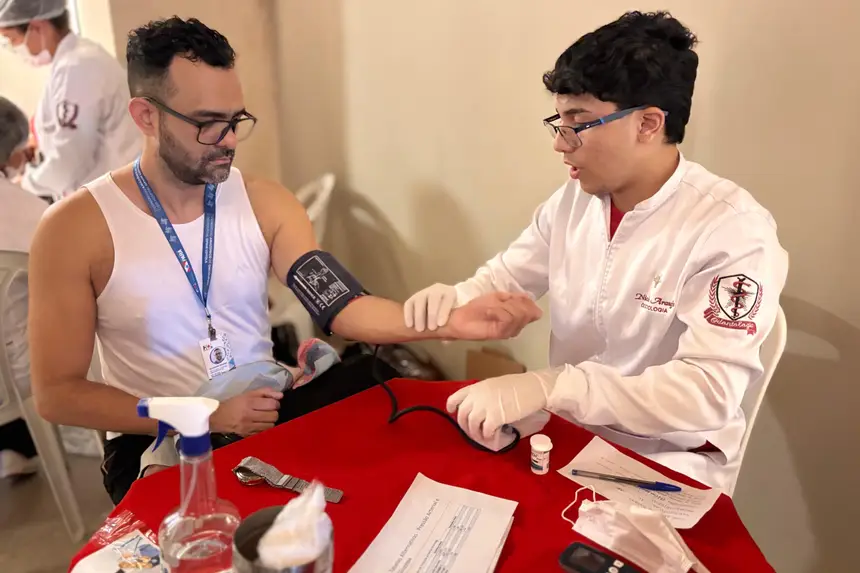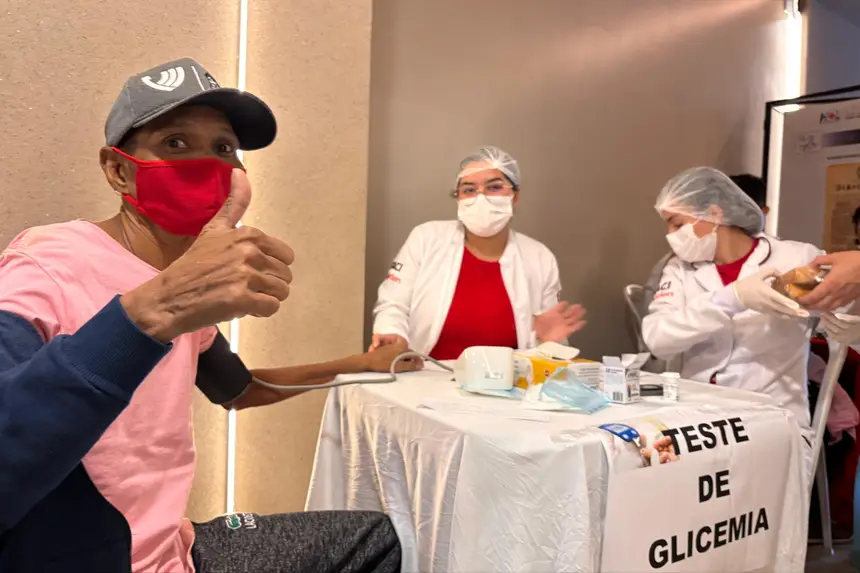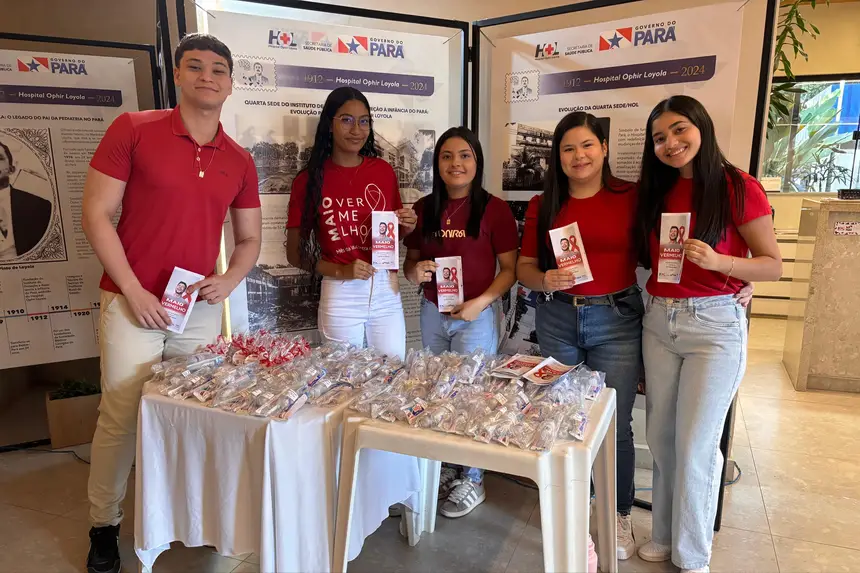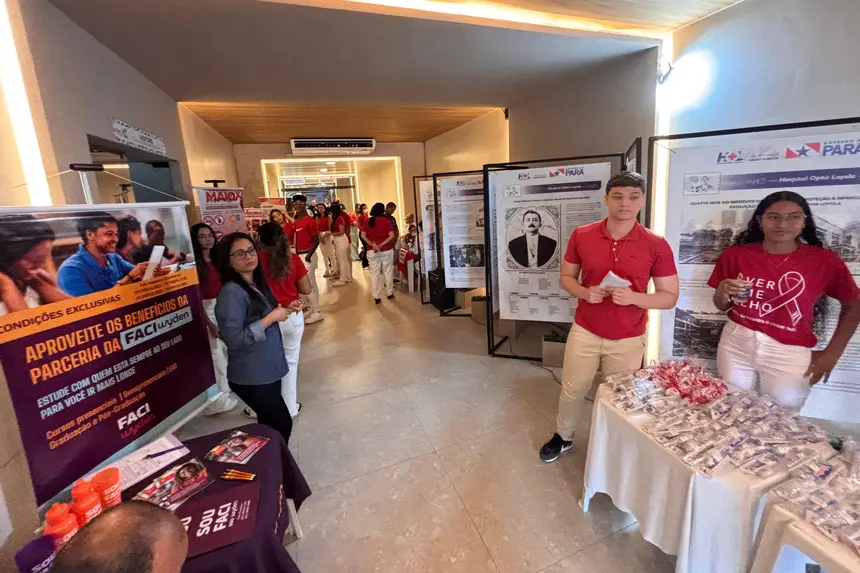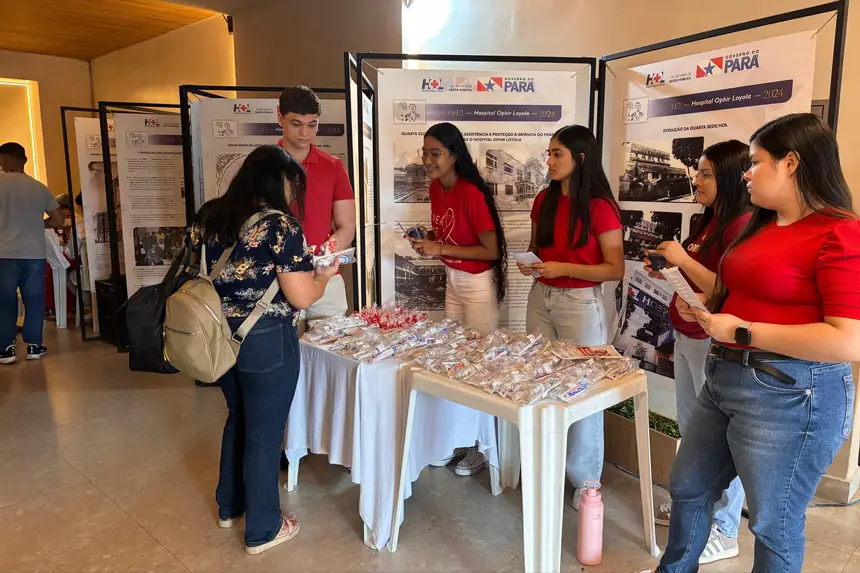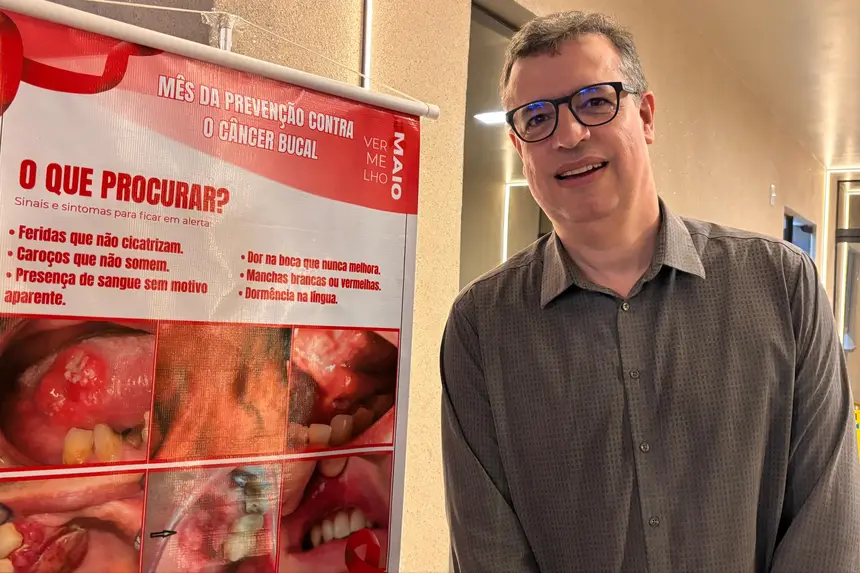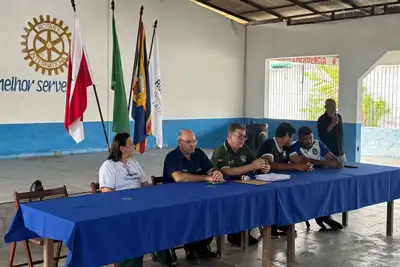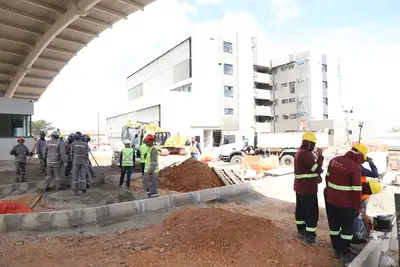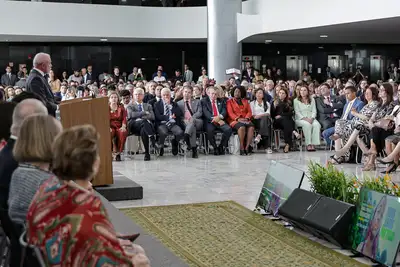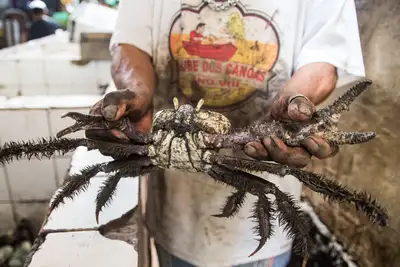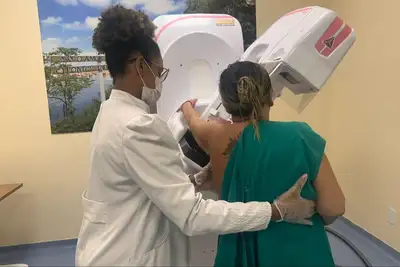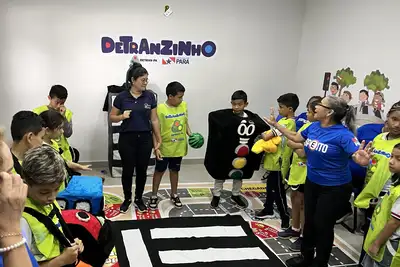Ophir Loyola and partners reinforce oral cancer prevention in Pará
Educational action highlights risk factors, early diagnosis, and expands access to oral health in vulnerable communities through screenings, guidance, and free services
The Ophir Loyola Hospital (HOL), in partnership with the State Coordination of Oral Health of the State Department of Public Health (Sespa) and the Dentistry course at Faci Wyden, carried out an educational action within the Red May campaign, aimed at prevention and awareness about oral cancer. The initiative addressed the importance of early diagnosis of the disease, which affects structures such as lips, gums, cheeks, palate, tongue, and floor of the mouth.
Oral cancer is the fifth most common type among men in Brazil and is often identified at advanced stages, which significantly compromises treatment and recovery chances.
Risk factors and early diagnosis
Of multifactorial origin, cancer of the mouth, lips, and oropharynx has smoking as its main risk factor. Excessive alcohol consumption, especially in combination with smoking, as well as overweight, obesity, exposure to industrial dust, asbestos, solvents, and pesticides, are elements that increase vulnerability, particularly among workers in agriculture, construction, and industries. Unprotected sun exposure also raises the risk of cancer on the lips, while infection with Human Papillomavirus (HPV) is related to cases of oropharyngeal cancer.
According to the director of Education and Research at HOL, Erick Pedreira, the National Cancer Institute (Inca) projects nearly 20,000 new cases of the disease in Brazil this year.
“This joint action of the hospital with Faci Wyden is essential to alert the population about the importance of self-examination, regular consultations with the dentist, and early detection,” he stated.
Pedreira also drew attention to the increase in lip cancer cases, especially in populations exposed to the sun, such as fishermen and rural workers.
“In addition to preventive guidance, we conducted blood glucose tests and blood pressure measurements on the patients attended. It is an important moment for health promotion and awareness,” he emphasized.
Integration of education and service and community impact
The presence of Dentistry students in campaigns like this is essential to bring academic training closer to public health needs. For Professor Thayna Tavares from the Dentistry course at Faci Wyden,
“These experiences strengthen clinical, communication, and ethical competencies. Students learn to communicate with the population, to see the reality of the public health network, and the social role they will have as future professionals. Besides learning, there is a direct impact on the community, reinforcing prevention and early diagnosis, which are essential in combating the disease.”
Organized with guidance and faculty supervision, the action offered screening, blood pressure measurement, rapid tests, guidance on oral self-examination, as well as educational materials and explanations about risk factors, warning signs, and ways to prevent oral cancer. Suspected cases were referred for specialized evaluation.
“We managed to strengthen the integration between education and service. We guided participants to seek the nearest health unit to continue their care. We also promoted the School Clinic of the college, which offers free dental care to the community. There is interest in expanding this partnership, integrating new campaigns and actions aimed at health promotion and early diagnosis, especially in vulnerable populations,” added Thayna Tavares.
Oral health in network
Strengthening attention to oral health, especially in remote and hard-to-reach areas, has been a priority in public policies in the state. The state coordinator of Oral Health, Alessandra Amaral, highlighted the role of the “Brazil Sorridente” program, established by Law No. 14,572/2023 as a permanent policy of the Unified Health System (SUS).
“This policy is realized through Oral Health Teams (eSB) integrated into the Family Health Strategy (ESF), expanding access to dental services throughout the state. We also have mobile dental units, Oral Health Specialty Services (SESB) in municipalities with up to 30,000 inhabitants, Dental Specialty Centers (CEO), Riverine and Fluvial Health Teams, and the Regional Dental Prosthesis Laboratory (LRPD),” she explained.
Pará has adopted specific strategies to bring dental care to isolated areas, such as the use of the Health Truck, which travels through the 144 municipalities with mobile offices, in addition to partnerships with projects like Comunidade Sorridente and educational institutions.
The coordinator also emphasized the integration with the Health in School Program and the implementation of continuous educational actions throughout the year, with greater emphasis on campaigns like Red May.
“Our goal is to reduce inequalities in access and ensure oral care for historically underserved populations. The state also stands out in monitoring actions, exceeding the agreed targets in supervised brushing indicators and oral health coverage,” concluded Alessandra Amaral.


